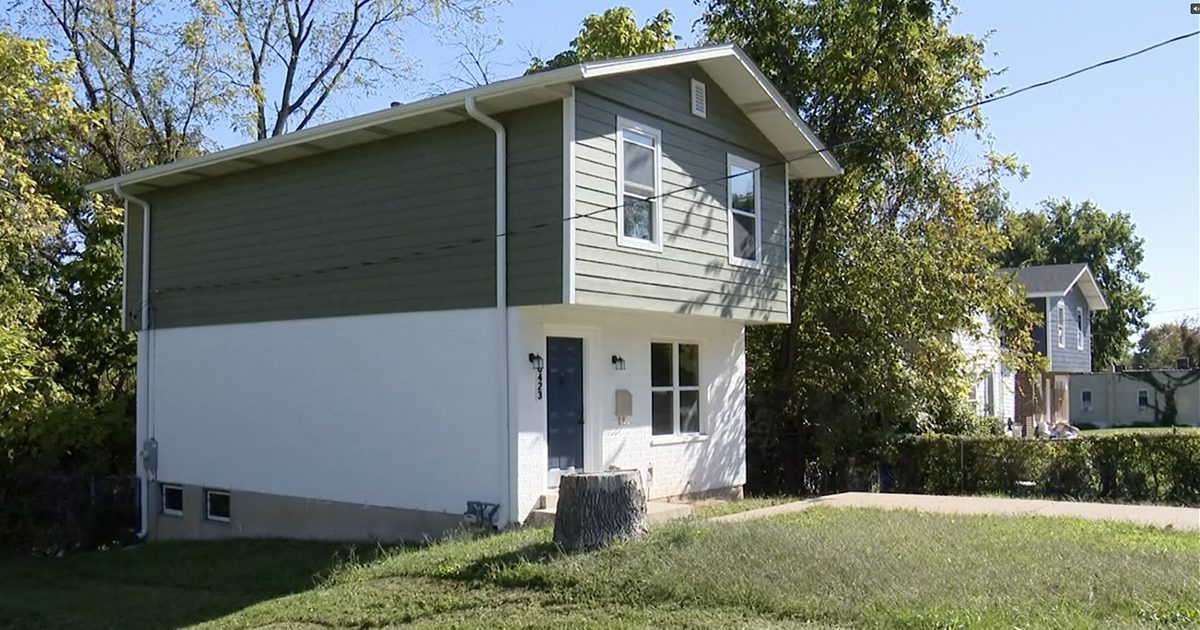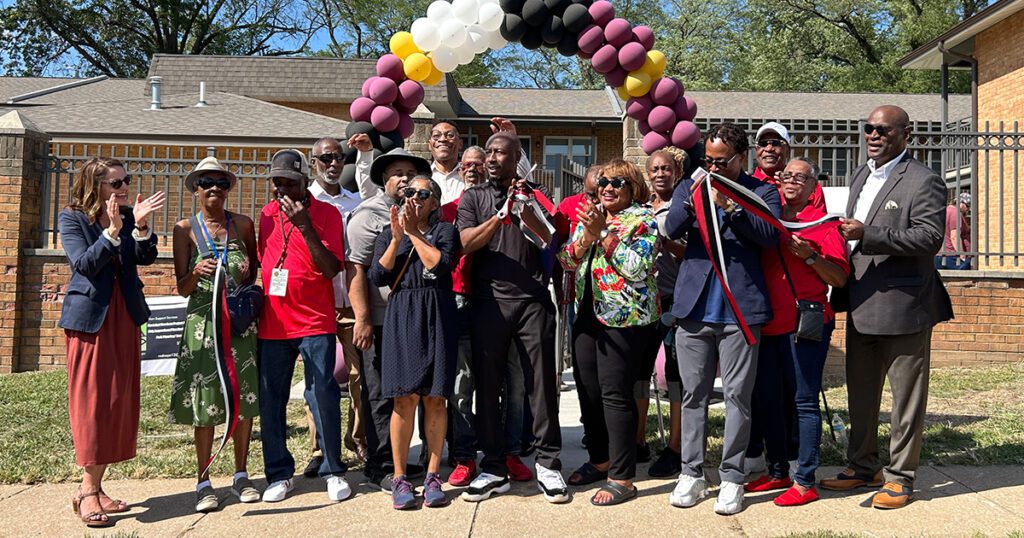See the interview on KSDK Channel 5
County Housing announced a significant milestone today in the $44 million renovation of Wellington Family Homes in Wellston: the first 21 families are returning to the community as part of the project.
The 186-unit public housing redevelopment project has been in progress for over six years, sparked by a grassroots effort to prevent its closure after the U.S. Department of Housing and Urban Development slated the units for demolition—a decision that would have devastated Wellston, a city with a population of 2,500.
“There is an alarming shortage of affordable housing in our area,” said Shannon Koenig, County Housing’s executive director and CEO. Koenig, who initially supported residents in their fight to save these homes as part of the County Executive’s office six years ago and continues to do so in her current role, added, “We simply could not afford to lose these homes—too many of our neighbors are already on a waiting list for a decent, affordable home.”
“This was a fight worth fighting, ensuring that these homes were not torn down,” said St. Louis County Executive Dr. Sam Page, who refused to sign documents the federal government needed to move forward with demolition. “I am pleased to see residents returning to these newly renovated homes that will be a source of pride for them and the entire community of Wellston.”
Wellston Mayor Nathaniel Griffin is also delighted with the progress of the project and its impact on the community. “Many doubted that this project would ever come to fruition,” he said. “Now, there’s a wave of positive energy in the community. Other developers are reaching out about doing scattered-site development projects near Wellington Family Homes. We have significant momentum—and it’s all centered around affordable housing, which is critically needed in the St. Louis area.”
The extensive renovations include new roofs, windows, cabinets, lighting, bathrooms, paint, flooring, and sidewalks.
Tracy Edwards, a former resident, is eager to return. The 41-year-old mother of two high schoolers recalls the days when Wellston’s public housing was in poor condition and mismanaged. Her experience so far has been positive. “The houses are great,” she said. “There’s new management – it’s not the same as before.”
Another resident returning is Ratasha Isom, who is moving back from Africa with her five children. After the Wellston public housing units closed, she first moved to Houston and then relocated to Ghana. Since February, her family has been living in hotels while waiting for their four-bedroom, single-family home.
“I’m eager to finally settle in,” Isom said. “My children have friends here, and they know the schools well. My whole family is from Wellston—my grandmother and aunts went to high school here. We’re deeply connected to this community.”
LaToya Scott shares the sentiment. As a current member of the County Housing Commission and a former Wellston public housing resident, she misses supporting her older neighbors. “Every Saturday, I’d host breakfast and bingo. I cooked for them and brought them gifts,” said Scott, who holds a commercial driver’s license and works as a Metro driver. “I also organized bus trips to wineries and Christmas shopping outings.”
Scott believes the most important lesson she learned from the redevelopment of Wellington Family Homes is the power of unity among residents. “Even though it takes time, if you stick together, you will get what you deserve,” she said.
Koenig expressed satisfaction with the quality and exterior appearance of the units renovated so far by Mississippi-based Knight Development. According to Koenig, the general contractor, Snyder Construction Group from Springfield, Missouri, is doing an excellent job of managing the project, keeping it on schedule and within budget. The project is set for completion in 2025.
“We are overjoyed to welcome residents back to Wellston. It’s been a long journey, but suddenly, the future seems brighter and full of endless possibilities,” said Holly Knight, CEO of Knight Development. “We are honored to have played a small part in this community’s historic recovery and restoration. We are delighted to share this day with our friends and partners.”
In addition to the low-income housing tax credit (LIHTC) funds to renovate the single-family homes and apartments in the Wellington Family Homes project, the community has received several million dollars of investment in complementary development, economic, and blight removal activities to support the revitalization effort’s long-term success.
Griffin said those resources are key to sustainable redevelopment in the small, predominantly Black community that has survived decades of disinvestment. “It can’t be just about the housing,” he said. “People have to have resources to thrive.”




